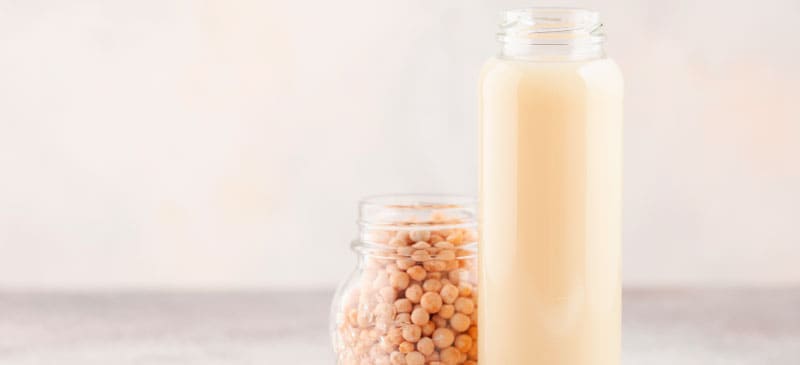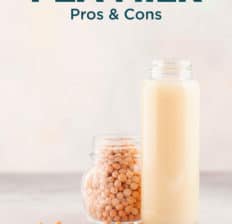This Dr. Axe content is medically reviewed or fact checked to ensure factually accurate information.
With strict editorial sourcing guidelines, we only link to academic research institutions, reputable media sites and, when research is available, medically peer-reviewed studies. Note that the numbers in parentheses (1, 2, etc.) are clickable links to these studies.
The information in our articles is NOT intended to replace a one-on-one relationship with a qualified health care professional and is not intended as medical advice.
This article is based on scientific evidence, written by experts and fact checked by our trained editorial staff. Note that the numbers in parentheses (1, 2, etc.) are clickable links to medically peer-reviewed studies.
Our team includes licensed nutritionists and dietitians, certified health education specialists, as well as certified strength and conditioning specialists, personal trainers and corrective exercise specialists. Our team aims to be not only thorough with its research, but also objective and unbiased.
The information in our articles is NOT intended to replace a one-on-one relationship with a qualified health care professional and is not intended as medical advice.
Is Pea Milk Healthy? Nutrition, Benefits, Uses + Downsides
September 3, 2022

In the world of plant-based milks, there’s no shortage of options to choose from. A new type that’s been growing in popularity is pea milk, which has a thick texture, off-white color and generally mild taste.
Is pea milk good for you? It’s a decent source of protein, not to mention nutrients like calcium and iron, plus it’s dairy- and soy-free. It’s also a good alternative for those unable to tolerate milk products, such as those with a milk allergy or lactose intolerant
Below we’ll cover what you need to know about the pros and cons of pea milk nutrition, plus offer tips for adding this milk alternative to your diet.
What Is Pea Milk?
Pea milk (also called pea protein milk or pea protein beverage) is a non-dairy milk alternative made from yellow peas. It’s one of the newest types of plant-based milks to hit store shelves, with the most popular brand in the U.S. currently Ripple, which was introduced in 2015.
How is it made? As opposed to being made from sweet green peas, pea milk is made from flour derived from yellow peas (also known as split peas), which are legumes that are naturally high in protein.
First, flour is made from drying and grinding peas, and then the protein is separated from other nutrients found in peas, including starch. Finally, the high-protein flour is purified and combined with water and other ingredients to improve the taste and texture.
Some brands mix pea milk with other plant-based milks, such as oat milk, almond milk or cashew milk.
Pea Milk Nutrition Facts
Peas are high in protein, and therefore so is milk made from them. On the other hand, almond, coconut and cashew milks are not great protein sources.
One cup (8 ounces) of pea milk contains about:
- 70 to 100 calories
- 6 to 15 grams carbohydrates
- 7 to 8 grams protein
- 4 to 5 grams fat
- 6 to 15 grams sugar depending on the type
- 465 milligrams of fortified/added calcium (about 50% DV)
- Some iron, potassium, vitamin A and vitamin D
You’ll find pea milk available in different flavors, including plain/unsweetened, vanilla and chocolate. In order to keep your added sugar intake low, opt for unsweetened types, and consider adding your own vanilla extract or stevia to boost the taste.
Benefits
1. Diary-Free and Soy-Free
If you enjoy the creaminess and taste of cow’s milk but you don’t tolerate dairy products well, pea protein milk can make a great dairy substitute for you.
Many people find the texture and taste of pea milk to be similar to regular cow’s milk, except it doesn’t cause the same digestive issues that dairy can commonly lead to, since peas don’t contain the type of sugar called lactose. In other words, if you follow a dairy-free diet, feel free to enjoy pea milk.
Peas are also soy-free, making them suitable for those with allergies or sensitive to soy products, including soy milk.
2. High in Protein
Is pea milk better than cow milk in terms of its protein content? It has roughly the same amount of protein as 2% cow’s milk (about eight grams per cup).
It’s also similar to soy milk in terms of its protein content, meaning it’s a good plant-based protein option for those following vegan/vegetarian diets.
3. Good Source of Some Essential Nutrients
Most plant-based milks, including pea protein milk, contain fortified nutrients, such as calcium and sometimes vitamin D. These are especially important for babies and children to get from milk, who need these nutrients for growth and development.
Many brands of pea protein milk are high in fortified calcium, containing even more than regular dairy milk, although the calcium that’s added instead of found naturally in peas. Certain types can also contain added vitamin B12, which many vegans are in need of.
Additionally, split peas are a good source of iron, magnesium and vitamin B6, which can also be obtained from pea milk.
4. Sustainable to Produce
If it’s important to you to make environmentally friendly choices when it comes to your diet, then you’ll be happy to know that split peas are sustainable and inexpensive to grow. Producing pea-based products is much less demanding in terms of resources than producing regular dairy milk, since peas don’t require much water or other resources and have a low carbon footprint.
Potential Downsides
- Can contain a high amount of added sugar — If you purchase pea milk that’s flavored (vanilla or chocolate), you unfortunately probably consume a lot of added sugar. However, you can avoid this by looking for unsweetened/plain types — just be sure to check the nutrition level, and pay attention to the amount of added sugar.
- Often made with additives — Depending on the specific brand, pea milk may contain not-so-healthy additives, such as sunflower oil, thickeners and phosphates, to help improve its texture and shelf life.
- Some don’t enjoy the taste — While pea milk has a more neutral/mild taste compared to soy milk, it still tastes slightly more like beans and less sweet/nutty/neutral overall compared to almond milk. On the other hand, among those who don’t like the thin consistency and nutty taste of some nut milks, pea milk can be a better option.
- May possibly cause allergies — While pea allergies are not as common as dairy, nut or soy allergies, they still exist among a small percentage of people. Anyone with a known allergy to peas or related legumes should avoid consuming pea milk.
- Can be expensive and not yet widely available — Compared to nut milks like almond milk or soy milk, pea milk is usually more expensive and harder to find. That may change in the future, however, if it becomes more popular and in demand.
Pea Milk vs. Other Milks
Is pea milk the healthiest milk? Each variety of plant-based milks has its own strengths and weaknesses. One area where pea milk nutrition stands apart from other milk substitutes if its protein content.
Is pea milk better than almond milk as a protein source? Yes, pea protein naturally has more protein than almond, cashew, oat or coconut milk. It’s close to soy milk and hemp milk in terms of protein content.
Pea milk has a bit more sugar and carbs than unsweetened nut milks (even plain pea milk), with about six grams of both per cup.
Regarding its content of calcium, most plant milks contain about the same amount of fortified calcium, which is added to make these milks closer nutritionally to regular cow’s milk.
How to Add to Your Diet
You can use pea milk just like you would other plant milks or cow’s milk. Try it in cereal, oats, smoothies, shakes, baked goods, sauces and so on.
Keep in mind that it’s a bit lower in fat than whole milk, so if you’re using it to make recipes creamy you may want to choose another thicker milk instead, such as canned coconut milk.
Here are some healthy recipes you can try pea milk in or with:
It’s also possible to make your own pea milk at home by drying, grinding and soaking peas.
Conclusion
- Pea milk (or pea protein beverage) is a plant milk made from yellow split peas, which are naturally high in protein, magnesium, iron and B vitamins.
- This dairy-free, soy-free, nut-free milk makes a good alternative to types like almond, coconut, soy or hemp milks.
- With a pretty neutral taste and high protein content, enjoy it in place of regular milk or other vegan milk substitutes.
- For the most benefits, choose unsweetened pea milk, and mix in your own stevia and vanilla extract for extra flavor.












